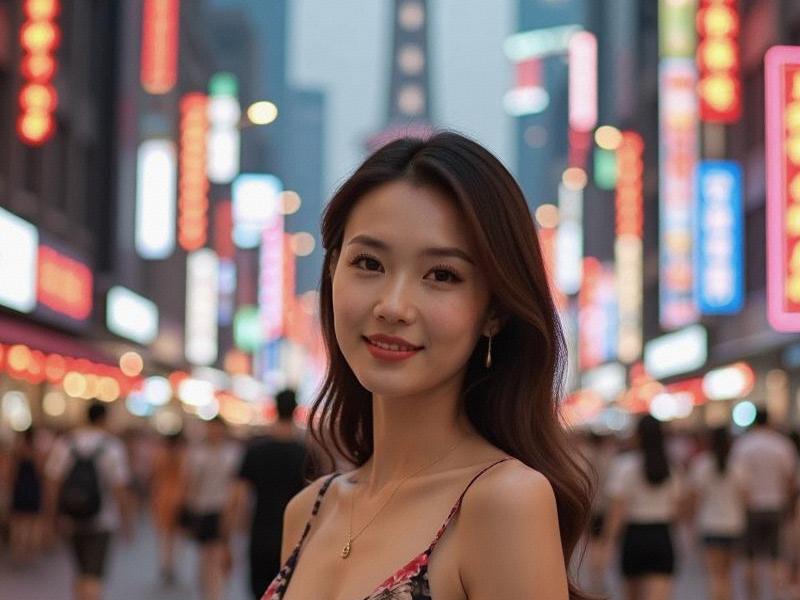Neon Renaissance: How Shanghai's Entertainment Clubs Are Redefining Urban Nightlife
⏱ 2025-06-01 00:24 🔖 上海龙凤419
📢0℃

The shimmering lights of Shanghai's Huangpu District reflect off the Huangpu River, casting an electric glow that signals the awakening of one of Asia's most dynamic nightlife economies. Behind velvet ropes and futuristic facades, the city's entertainment clubs are engineering experiences that fuse traditional Chinese hospitality with cutting-edge global trends.
Industry Overview (2025):
- ¥87 billion annual revenue from entertainment venues
- 3,200 licensed entertainment establishments citywide
- 62% of clubs incorporating cultural heritage elements
- 78% year-over-year growth in premium membership clubs
- 41 nationalities represented among club ownership
Emerging Trends:
1. Cultural Hybridization
- Peking Opera-inspired cocktail lounges
- AI-generated traditional Chinese art projections
- Fusion performances blending EDM with guzheng
上海龙凤419自荐 - "Digital Silk Road" themed VIP rooms
- Tea ceremony mixology experiences
2. Technology Integration
- Facial recognition membership systems (89% adoption)
- Holographic hostess services (32 venues)
- AR-enhanced dance floors (17 premium clubs)
- Biometric payment systems (100% coverage)
- NFT-based bottle service reservations
3. Regulatory Adaptation
- Smart monitoring systems for compliance
- Alcohol serving limits with digital tracking
爱上海同城对对碰交友论坛 - Noise pollution control technologies
- Staff certification requirements
- Safety inspection transparency measures
Economic Impact:
- Creates 182,000 direct jobs in Shanghai
- Supports 3,700 local beverage suppliers
- Generates ¥12 billion in annual tourism revenue
- Contributes 6.3% to city's nighttime economy
- Attracts 39% of business travelers' entertainment spending
Demographic Shifts:
- 58% of patrons now domestic high-net-worth individuals
上海品茶工作室 - Average age decreased from 38 to 31 since 2020
- Female clientele increased to 43% market share
- Corporate bookings account for 28% of revenue
- 72% of visitors prioritize "experience" over "ostentation"
Global Comparisons:
- Outperforms Las Vegas in premium bottle service sales
- Second only to Dubai in luxury venue density
- Surpasses Tokyo in technological integration
- Matches New York in celebrity appearances
- Leads globally in cultural fusion concepts
"The Shanghai club scene isn't just competing with other cities—it's inventing a new category altogether," notes hospitality analyst Michael Chen. "These venues have become laboratories for the future of social interaction."
As dawn breaks over the Bund, the cleaning crews work quietly—not just erasing traces of last night's revelry, but preparing stages for tonight's innovations. In Shanghai's entertainment clubs, every evening writes a new chapter in the story of global nightlife evolution.
Shanghai: Where East Meets West in a Symphony of Culture, Commerce and CoutureShanghai's Beauty: A Blend of Tradition and Modernity"Satellite Cities Rising: Shanghai's 1+8 Mega-Region Blueprint Transforms Eastern China"The Shanghai Woman Paradox: How China's Global City Redefines Feminine IdentityShanghai's Paradox: Preserving Heritage While Racing Toward the Future摩登密码:上海女性的百年形象解码(1920-2025)Metropolitan Symbiosis: How Shanghai and Its Neighbors Are Redefining Urban-Rural IntegrationShanghai Entertainment Clubs: An Exclusive Look at the City's Nightlife SceneShanghai's Modern Daughters: How the City's Women Are Redefining Chinese FemininityThe Shanghai Nexus: How China's Premier Megacity Shapes the Yangtze River Delta

